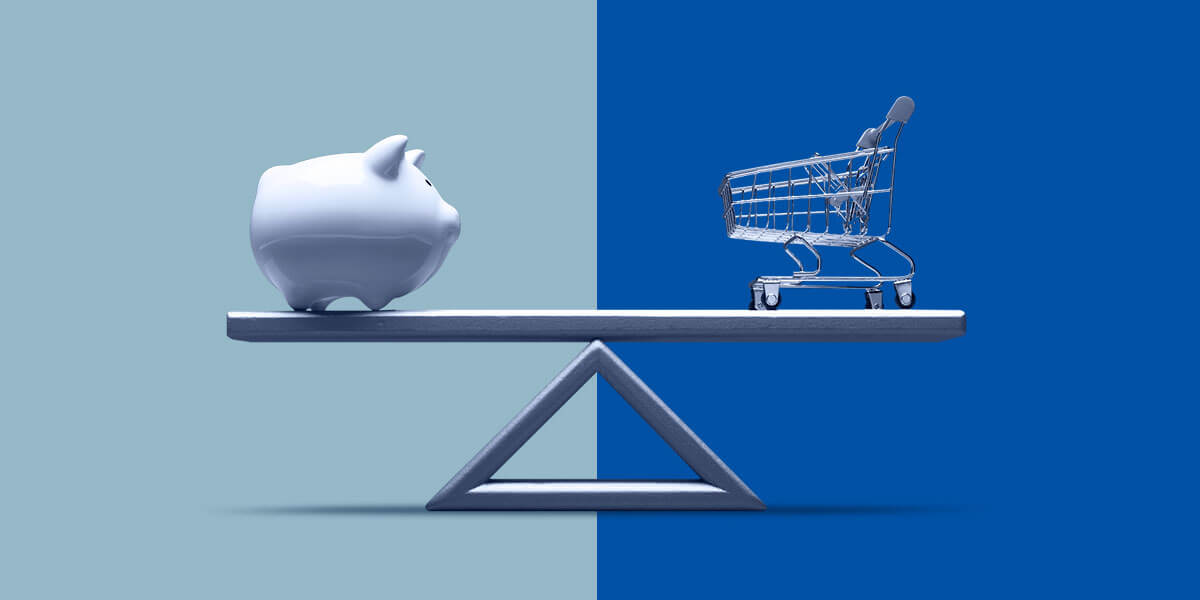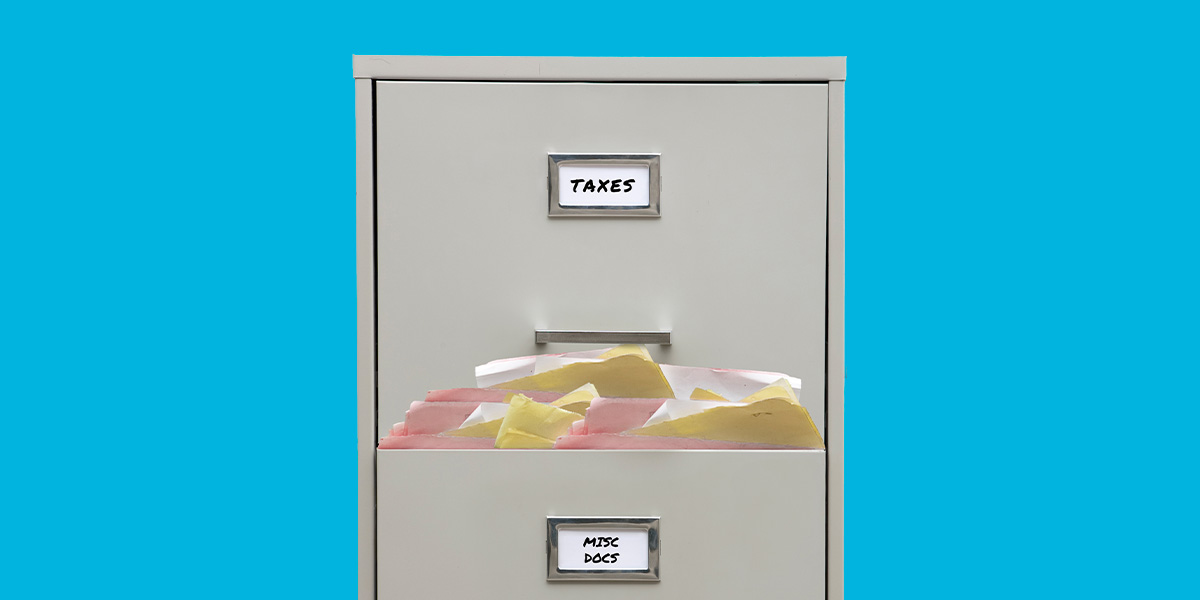-
Personal Banking -
Insights
What Is a Certificate of Deposit?
Rising interest rates trigger awareness of the potential to earn more on assets kept in a bank money market fund or in a Certificate of Deposit. While these tools don't fit every financial need, a Certificate of Deposit (CD) can be valuable in some circumstances.
“It's important to start every conversation about money by talking about the purpose of the funds," said Mary Helmich, a personal banking strategy manager for City National Bank. “It makes a difference if the money is for a specific use such as investing in a business, making a deposit on a new house, paying for a wedding or for a major home remodel."
While rates on Certificates of Deposit (CDs) typically rise when other interest rates increase, they're less popular when rates are low.
“Any discussion about what to do with your money should be an opportunity to talk about your business and personal plans," said Erich Klein, head of branch strategy and innovation for City National Bank. “In addition to CD strategies, your banker and investment professional can talk about money market accounts and investments with varying degrees of return, risk and liquidity options."
Interest rates have been extremely low for years, so many have not bothered to compare options and rates for safe vehicles such as CDs, said Helmich.
“Now that rates are rising, this would be a good time to evaluate your cash position and discuss options with your financial planner," she said.
How CDs Work
A Certificate of Deposit is a timed bank deposit available with various maturity dates. CDs typically have a minimum deposit requirement, sometimes as low as $500 to $1,000. Jumbo CDs are also available, typically with a minimum deposit of $100,000.
“There's a CD for every season, with maturity dates as short as seven days and as long as 10 years," said Joe McHugh, head of small business banking for City National. “Typically, the longer the maturity date is, the higher rate you'll earn."
CDs typically have penalties for early withdrawals before the maturity date that vary based on the terms of the CD. Penalties are often higher for longer-term CDs. Typically, the penalty is based on interest earned and usually doesn't impact the principal. However, if the interest earned doesn't cover the penalty, there's a possibility that the penalty could include a small amount of your principal deposit.
“The main drawback of a CD is that it's an illiquid asset unless you're willing to pay the early withdrawal penalty," said McHugh. “On the other hand, the funds are FDIC insured and you're guaranteed a specific rate of return."
Some CDs are offered with a one-time penalty-free withdrawal to entice savers.
"CDs sometimes have promotional rates that are higher than competitor institutions," said McHugh. “While you may get a better rate, be sure to check that the bank is solvent and that the funds are FDIC-insured."
As with any financial decision, it's best to consult your financial advisor and to understand the full consequences of a CD before acting.
Why Use a CD for Personal Assets
CDs offer certainty and safety for risk-averse individuals, but they don't provide significant returns when interest rates are relatively low. However, they can be part of a strategy for maintaining assets for an emergency fund.
"Depending on your situation, you want to have six to 12 months of expenses saved, or possibly more if your income is inconsistent," said Helmich. “You can work with your financial advisor or banker to compare your options and the rates for a money market fund, CDs and short-term investment solutions."
A CD could be an option to consider because it may have a higher rate than some liquid asset options and doesn't incur fees to set up or maintain, said McHugh.
“For some people, the penalty for early withdrawal might be a disincentive to spend the money for nonessential reasons," said McHugh. “That can make it a good fit for an emergency fund."
Other reasons to consider a CD might include earning interest on short-term savings for a specific goal, such as the down payment on a house or for a wedding.
CDs for Business Use
A CD can be used for personal or business reasons. Most business owners don't consider CDs as part of their business plan, primarily because of the lack of penalty-free accessibility, said McHugh. However, there are cases when a CD could be a valuable financial tool for a business owner.
“It's possible to use your business CD as collateral for a loan to hold onto your cash," said McHugh. "The borrowing cost is relatively inexpensive if you use the CD as collateral. When your loan is repaid, the CD funds are still there for future use."
For example, McHugh said, the owner of a CD with a 1% rate might be able to borrow against it with a 3% to 4% loan, which is much lower than a typical business loan rate.
A business owner who wants to earn interest on cash held for a specific period, such as for the purchase of a new site or for an expansion of the business in a few months or one year, might want to consider a CD.
CD Strategies
When interest rates are rising, CDs can be part of an overall plan for liquidity, said Helmich. A ladder strategy, in which you purchase CDs with various maturity dates so that you have funds available periodically for cash, another CD or to invest with is a common practice.
For example, you can take a $5,000 sum and split it into five CDs that mature at different intervals such as 30, 60, 90, 120 and 180 days. At each maturity date you have the opportunity to choose a CD with a higher rate or use the money for something else.
“In a regular rate environment, you may want to ladder CDs so they mature every six to nine months," said Helmich. “When rates are rising as rapidly as they are now, you may want to consider laddering with maturity dates at least every quarter. That way you can take advantage of higher interest rates every few months."
You can set up an automatic renewal or rollover for your CD, but your bank must notify you of the new rate within a certain period of time so you can decline the rollover if you prefer. If you choose automatic renewal, it's important to compare CD rates and alternative options before accepting the new CD rate and term.
Some banks offer a “bump-up" CD or a “raise-your-rate" CD that allows one interest rate increase during the CD term, which could be valuable in a rising rate environment, said Helmich. Similarly, “step-up" CDs regularly raise your interest rate at specific intervals. However, these CD options typically start at a lower interest rate than traditional CDs.
CDs, Money Market Accounts & Other Options
If you're considering using CDs, you may want to compare the rates and terms of other options before making a choice. Generally, for FDIC-insured accounts, savings account rates are the lowest, followed by money market accounts, said McHugh. CD rates could be a little higher depending on the maturity date.
“Money market rates are more attractive than in the past and offer more flexibility in a rising rate environment than CDs," said Helmich.
Take into consideration the difference in rate between the CD and a money market account when determining which one might suit your financial situation, added McHugh. If they are fairly close, a CD may not be worth it if there's a risk that you'll need the money before the term is up.
Are There Limits on Withdrawals from Savings Accounts?
Since CDs often carry early withdrawal penalties, they don't have the liquidity that other types of savings accounts have if they allow withdrawals.
The government previously placed a limit on how often a person could withdraw from savings accounts. However, during the COVID-19 pandemic, the Federal Reserve Board made changes to Regulation D, the rule that limited withdrawal from savings accounts. This change remains in place today.
While money market and savings accounts are no longer required to cap withdrawals at six times per month, some financial institutions continue to limit withdrawals to that maximum.
How Are CDs Taxed?
When you choose what to do with your emergency funds or with funds set aside for a specific use in the near future, you should consider the tax consequences for each option.
“Be cognizant of the tax considerations of each vehicle you're comparing," said Klein. “Not only do different options offer various levels of risk, but some also have tax advantages."
The profit earned through interest on CDs is reported as income and taxable, unless the CD is part of a retirement account with tax advantages such as an IRA.
As with every other financial decision, whether to put money toward a CD depends on multiple factors.
“A CD is just an option to consider and discuss with your financial advisor in the context of what you're trying to do, your timeline and your risk appetite," said McHugh.
This article is for general information and education only. It is not to be construed as an offer, or solicitation of an offer, to buy or sell any financial instrument. It should not be relied upon as specific investment advice directed to the reader's specific investment objectives. Any financial instrument discussed in this article may not be suitable for the reader. Each reader must make his or her own investment decision, using an independent advisor if prudent, based on his or her own investment objective and financial situation. Prices and availability of financial instruments are subject to change without notice. Financial instruments denominated in a foreign currency are subject to exchange rate risk in addition to the risk of the investment. City National Bank (and its clients or associated persons) may, at times, engage in transactions in a manner inconsistent with this article and, with respect to particular securities and financial instruments discussed, may buy from or sell to clients or others on a principal basis. Past performance is not necessarily an indication of future results.
City National, its managed affiliates and subsidiaries, as a matter of policy, do not give tax, accounting, regulatory or legal advice. Rules in the areas of law, tax, and accounting are subject to change and open to varying interpretations. You should consult with your other advisors on the tax, accounting and legal implications of actions you may take based on any strategies presented, taking into account your own particular circumstances.
This article may not be reproduced, distributed or further published by any person without the written consent of City National. Please cite source when quoting.





